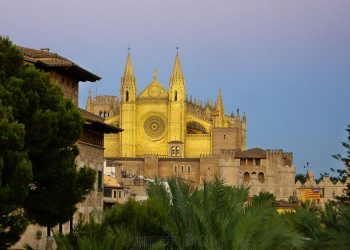Coffees are naturally made from different plants all over the world but there is this special one which coffee cherries are not directly collected from the plants but from the faecal matter of an animal called Luwak, an Asian Palm Civet. Well inasmuch as that may sound odd and weird, this is absolutely a reality.
May be we should start tasting faeces of other animals as Grasscutter Faeces is also used by Ghanaians to prepare very delicious soup.
The Civet coffee also known as the Kopi Luwak, is produced by the Asian Palm Civet. The special coffee is produced when the little Asian mammals eat coffee cherries. The coffee cherries undergo partial digestion as they pass through the intestines of the Civet, after which they come out as faecal matter.
The faecal matter (digested cherries) is then collected by the coffee producers, processed and packaged as coffee. The Civet coffee is the world’s most expensive coffee and is regarded as a reserve for the rich with a kilogram costing as much as $700.

Over the years, farmers and producers of the Civet coffee have argued that the coffee provides more health benefits as compared to others. While these may not have been proven by any scientific research, there has been no report of the coffee having an adverse health effects on consumers.
The traditional means which used to be the collection of faeces from the wild civets have given way to large and intensive farming where civets are reared in cages and forcefully given the coffee cherries to eat.
This farming practice has particularly become common in Asian countries like Vietnam and the Philippines as well as Indonesia where the wild civet abound and are mostly found, also making these countries the main producers of the civet coffee.
Animal Welfare Controversy
Over the course of the years, international organisations have had cause to question producers of the Civet coffee over the treatment of the civets. According to investigators and animal rights groups, the civets are cruelly treated by the farmers, forced to eat coffee berries or risk being beaten by the farmers. Animal rights group, TRAFFIC, reports that about tens of thousands of civets are forcefully taken from the wild and undergo severe cruelty in battery cages all in a bid to force them to eat coffee berries and produce the needed faecal matter for the market. British media BBC upon investigations also reported that civet coffees from caged civets are branded as civet coffee berries obtained through collection in the forests.
The Asian Civet
The Asian civet, popularly known as The Luwak, is a small catlike animal found predominantly in Eastern Asia. The Luwak lives in the forest among other wild animals and eats among other foods the coffee berries. These coffee berries after eaten by the Civets, goes through a digestion process as common with all animals and consumed foods. However, unlike other eaten foods, the coffee berries undergoes only partial digestion and some sort of special fermentation process, that changes the consumed coffee berries into something else- with a wonderful aroma, rather than the usual stench that comes with faecal matter.

While the Civet Coffee is predominantly produced in Asia, the product can be found in the markets of Europe and the America, but at very high prices due to the rarity and uniqueness of the coffee.
Still have some travel questions? Ask in our Travel WhatsApp Group.







